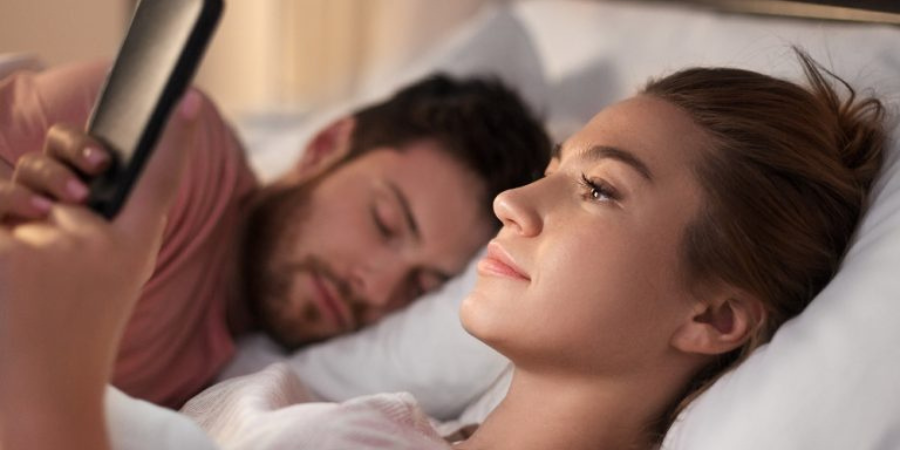
Written by:

Medically Reviewed by:
Last Updated:
March 26th, 2025
Internet addiction
The smartphone is the modern-day hypodermic needle, delivering digital dopamine 24/7 for a wired generation.
Anna Lembke
In society today, the widespread impact of the internet on each of our lives is undeniable. A great deal of us would not be able to function without it, and data reveals that in 2020, social media use was essential for 28.7% of UK users’ work commitments. The internet is an essential fact of everyday life, one which is incredibly convenient, whilst at the same time, having the potential to reap dangerous consequences.
You might be wondering, with all these devices, how could something that is helping us also be hurting us? Below, we will explore why internet addiction has the potential to be just as powerful as any other behavioural addiction and the ways that treatment programmes such as rehab for internet addiction can set you on the road to recovery.

What is internet addiction?
Internet addiction relates to circumstances where an individual will use the internet so excessively that it begins to interfere with all other aspects of their daily life. While spending a little time winding down on our devices is perfectly harmless, for others, it can become a compulsion that leaves users feeling powerless, maintaining their addiction even if it poses noticeable harm to their health and wellbeing.
How internet addiction works
Addiction is a condition that acts on the brain’s pleasure centres. This is not just the case with substances, like drugs or alcohol, but extends to different behaviours, like gambling, eating or internet abuse. By tapping into those same reward centres, someone addicted to the internet will experience intense pleasure when taking part in the behaviour, driving them to engage with it again and again. However, after continued use, the individual may feel that they need more online stimulation to achieve this same sensation, which is how addiction develops. Compulsive internet use changes the way that the brain functions, making the user feel that getting online is far more pleasurable than any other activity. This pleasure of the internet comes as a direct result of the reward. For example, the sensation of a buzzing phone or the sound of a new notification all work together to fuel the addiction, offering a jolt of dopamine which sends our pleasure centres into overdrive, which is why it can be so difficult to shake.
Why is the internet addictive?
We have seen a rise in individuals suffering from internet addiction throughout the years, and this number only seems to be rising. As human beings, we are social creatures, and technology can prove a fantastic way to find connection, all from the comfort of our own homes. With access to such a huge amount of information on a variety of platforms, the internet can make us feel that we are part of something bigger than ourselves. For this reason, it is common for many of us to feel obligated to stay online in an effort to stay connected, and this fact contributes to the internet’s addictive potential.
Signs of internet addiction
If you are unsure whether you or a loved one is addicted to the internet, here are some signs and symptoms to look out for:
- Both professional and social commitments have become negatively impacted as a result of your internet use.
- You are lying to a loved one about your internet use.
- You’ve become preoccupied with the internet, wishing you were online even when engaged in other activities.
- You feel anxious and paranoid when you do not have access to the internet.
- Most of your waking hours are spent online.
Internet addiction treatment
Treatment for internet addiction across our UKAT centres is provided through a number of methods, such as:
Cognitive Behavioural Therapy (CBT)
One of the most effective forms of therapy for internet addiction. Those who suffer from negative thought patterns are often driven to seek out certain behaviours as a way to deal with these emotions. If we can help change our thought patterns for the better, this can greatly impact feelings and overall mood, often meaning that they no longer feel the need to turn to the internet as a way to cope.
Group Therapy
One of the biggest symptoms of internet addiction comes with reduced social interaction and isolation, with individuals becoming detached from their friends and family as their condition escalates. For this reason, group therapy offers a wonderful environment to enhance social interaction, giving clients a safe space to open up about their condition, surrounded by support and compassion.
Coping Strategies
According to Ofcom, only 6% of all homes in the UK do not have access to the internet, meaning that it is almost unheard of to enter an environment which does not have some sort of technology which allows us to go online. Therefore, while many addictions value abstinence as essential to ensuring recovery, this is not possible with the internet, as for many of us, it cannot simply be cut off. The internet is all around us and affects almost everything we do. For this reason, those of us who are addicted to the internet benefit from coping strategies, making it easier to live in this digital world without the need to return to compulsive behaviour.
Internet addiction is a real problem, one that has the potential to jeopardise our quality of life and impact relationships. If you are suffering from internet addiction and are unsure of where to turn, we at UKAT wish to assure you that you are not alone and we can help you. For any more information about treatment options for internet addiction, contact a member of our team right away and put yourself on the road to life-long recovery.








